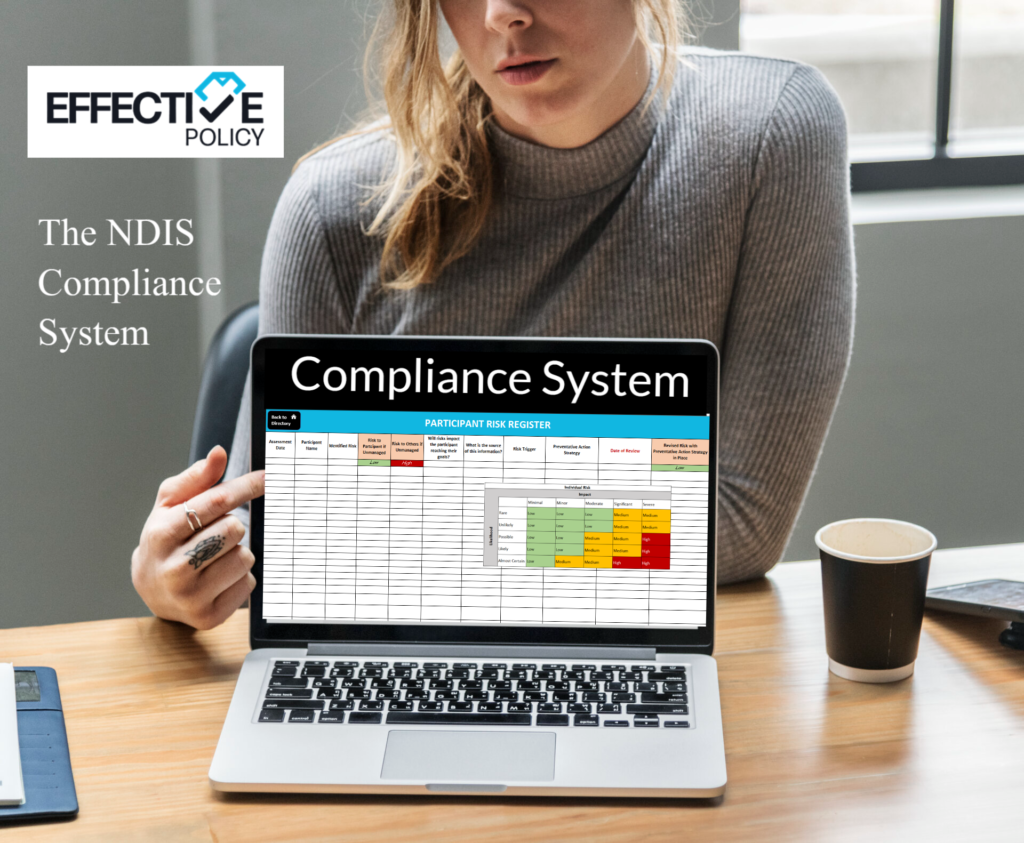Internal Audit
Independent Internal Auditing Services
In short; Yes!
The Quality Management standard under the NDIS Quality and Safety Standards says: The provider’s quality management system has a documented program of internal audits relevant (proportionate) to the size and scale of the provider and the scope and complexity of supports delivered.
This means that to conform against this standard, there must be evidence of internal audits being conducted.
Mid-cycle.
For example, If you receive your registration on 1/1/2022, then your mid-term audit will be 18 months from the date you receive your registration.
If you have an audit about 9 months from the date of your registration, this will give you 9 months to make the quality improvements.
Many people leave it until the last minute, and that will create a great deal of stress for you, and reduce the success of minimising your non-conformities and maximising your safety, quality, efficiency, risk and service effectiveness.
Don’t have an internal audit just to be compliant. Have an internal audit because you want your participants and staff to be safe and well.
- When you outsource your auditing, you will not be dealing with the bias that can come when internal staff conduct the audits. Add to that that your internal staff only know what they know. An independent internal auditor should have loads of experience!
- Saving time. If you or your staff are organising the audit, reporting the audits, writing up a continuous quality improvement action list, the odds are the cost of those extra duties will amount to a higher financial cost than the cost of an independent auditor.
- You will have a compliance snapshot of your organisation. With plenty of time to implement the remediations necessary. Better to have nonconformities at an internal audit than at commission audit where they are recorded.
- Total piece of mind. This is the phrase we hear frequently from our internal audit clients. They feel supported, and no longer overwhelmed.
- Having the internal audit itself represents an entire standard. The internal audit report produces a Continuous Quality Improvement action plan (yay), and all areas of your registration will be gently scrutinised. It is a friendly and supportive service. We are only there to support you.
Absolutely not. It is informal. The only record of the findings will be in your hands. We don’t send it to anyone. The reason we are there is to find the gaps and point them out to you. There is no need to go cleaning up files, policies, or anything else.
If the NDIS Commission auditor carrying out your next formal audit is doing their job properly, they will give you a major non-conformity for not having an internal audit outcome to show them. That will have a domino effect on other areas also such as: risk, complaints, incidents, information, human resource, continuity of care, emergency management and many more.
Yes. As we are not conducting an audit on behalf of the NDIS Commission, we are not bound by a ‘non consulting’ rule. This means we can give you advice during the audit which many clients find helpful.
A minimum of 5 years commercial auditing or assessing for NDIS Commission. You shouldn’t accept any auditor without experience past or present, auditing on behalf of the NDIS Commission, Aged Care Commission or another Australian Regulatory Body.

